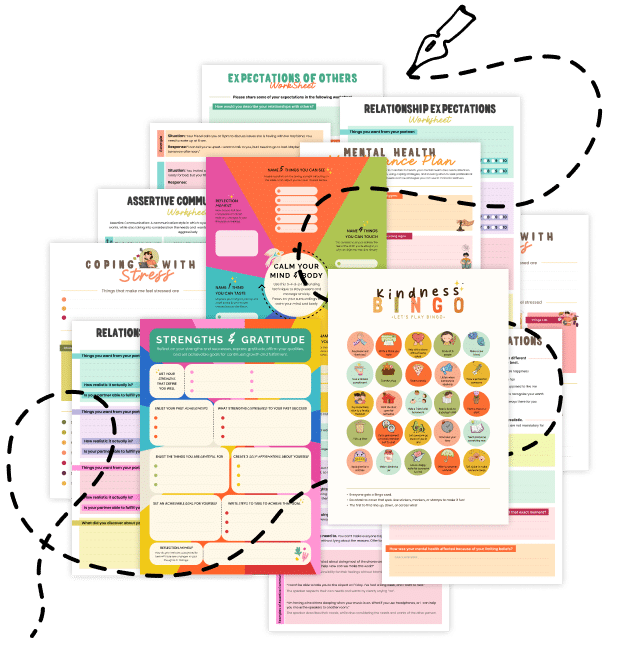20 Things About Cerebellar Contributions to Cognition
Explore cerebellar contributions to cognition and how this “little brain” in the back of your skull influences far more than just movement—discover its vital role in higher thinking, emotional regulation, and overall mental performance.
1. The “Little Brain” Misconception
The cerebellum, Latin for “little brain,” is often viewed solely as the control center for balance and coordination. However, research increasingly shows its involvement in cognitive functions like attention, language, and planning.
2. An Evolutionary Perspective
Early in evolution, the cerebellum was primarily about motor skills. Over time, it expanded to support complex thought processes, including abstract reasoning and problem-solving.
3. Coordination Beyond Movement
While it’s famous for motor coordination, the cerebellum also helps you coordinate cognitive tasks—such as switching between ideas, focusing on relevant details, and filtering out distractions.
4. Role in Language Processing
Studies suggest that cerebellar lesions can affect speech production and understanding. People with cerebellar damage may struggle with word retrieval, syntax, or even reading fluency.
5. Impact on Executive Function
Executive functions—like planning, working memory, and decision-making—benefit from cerebellar input. This region helps you manage complex mental tasks with precision and efficiency.
6. Emotion and Self-Regulation
The cerebellum connects to parts of the brain that handle emotions. Disruptions here can lead to mood dysregulation, anxiety, or difficulties in emotional expression and empathy.
7. Fine-Tuning Cognitive Performance
Just as the cerebellum fine-tunes physical movement, it also “fine-tunes” your thinking. This behind-the-scenes calibration helps make mental processes smoother and more accurate.
8. How Sleep Helps the Cerebellum
During sleep—particularly deep sleep—cerebellar neurons may reorganize and strengthen pathways related to learned tasks. This overnight work contributes to both motor skill improvement and cognitive consolidation.
9. Cerebellar Plasticity
The cerebellum is highly adaptable. Repeated practice—be it in sports, musical instruments, or mental exercises—can reshape cerebellar pathways, leading to enhanced performance over time.
10. Brain Lateralization Connections
Although often overlooked in lateralization discussions, the cerebellum has “cross-talk” with both hemispheres of the cerebrum. This coordination aids in balanced cognitive and motor functioning.
11. Development Across Lifespan
In children, the cerebellum supports motor and cognitive milestones, like learning to walk or form sentences. In adults, it continues to adapt, influencing ongoing skill mastery and mental agility.
12. Signs of Cerebellar Dysfunction
Beyond unsteady gait and poor balance, cerebellar issues can manifest as slowed thought processes, difficulty switching tasks, or struggles with social cues and emotional control.
13. Role in Predictive Processing
The cerebellum helps your brain anticipate what’s likely to happen next—key for tasks like reading comprehension, conversational timing, or quickly responding to environmental changes.
14. Cerebellar Contributions to Cognition Link to Creativity
By coordinating information flows across different regions, the cerebellum can help you blend diverse ideas—fueling creative leaps and “aha” moments.
15. Emotion and Cognition Connection
Your emotional states can influence cerebellar function, impacting how efficiently you process information. Chronic stress might disrupt these pathways, harming both mood and cognitive performance.
16. Strategies to Strengthen Cerebellar Circuits
Complex physical activities (like dancing or playing a sport), musical training, and even certain video games all engage cerebellar circuitry, potentially enhancing cognitive agility.
17. Impact of Injury or Atrophy
A damaged or underdeveloped cerebellum can hamper cognitive tasks—patients may need targeted therapies (like cognitive rehab or specialized exercises) to recover lost functions.
18. Ongoing Research
Scientists continue to explore the cerebellum’s role in language disorders, autism spectrum conditions, and various learning challenges. The more we learn, the clearer its cognitive significance becomes.
19. Personalization of Cerebellar Training
Each person’s cerebellum may respond differently to various exercises. Tailoring mental and physical activities to your interests fosters better engagement and more robust neural changes.
20. Related Topics to Explore
- Brain Lateralization Exercises: Discover how engaging both hemispheres can complement cerebellar functions.
- Cognitive Load Theory: Explore strategies to optimize mental effort, a process in which the cerebellum plays a role.
- Brain Glymphatic Function: Learn how sleep-mediated waste clearance supports overall brain health, including the cerebellum.
- Neural Efficiency Hypothesis: Understand how the brain (and cerebellum) can achieve peak performance by using resources more effectively.
Quick Tips to Boost Cerebellar Contributions to Cognition
- Try Coordination Drills: Activities like juggling or balance exercises challenge the cerebellum and sharpen mental agility.
- Combine Physical & Mental Tasks: Take a break from desk work to do a short, skill-based routine (e.g., dance steps) that demands focus.
- Prioritize Quality Sleep: Deep rest helps the cerebellum strengthen motor and cognitive pathways.
- Cultivate Mind-Body Awareness: Practices like yoga or Tai Chi can fine-tune cerebellar function by blending mindful movement with attention.
- Stay Curious: Seek out new, complex hobbies—learning fresh skills keeps cerebellar circuits adaptable and engaged.
The Cerebellar Contributions to Cognition extend far beyond motor control, influencing our thinking, emotional balance, and overall mental performance. By incorporating coordination exercises, quality sleep, and a commitment to life-long learning, you can tap into this remarkable structure’s full cognitive potential. Share this article with friends or coworkers—help them appreciate the cerebellum’s hidden power in shaping who we are!


